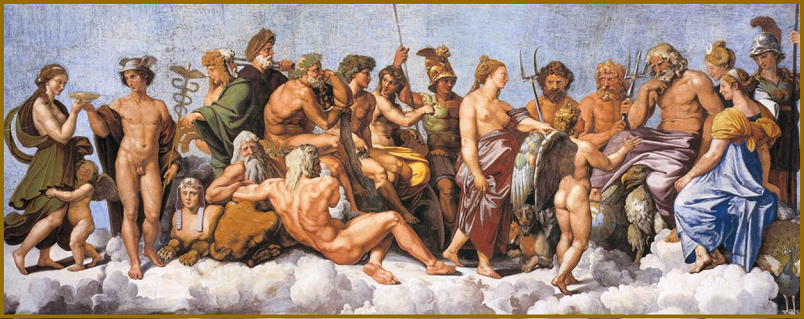Category:Religio Romana (Nova Roma)
(→Roman Religion in Antiquity and Today: lionk to Cicero) |
(corrected list address) |
||
| (22 intermediate revisions by 7 users not shown) | |||
| Line 1: | Line 1: | ||
| − | + | {{LanguageBar|{{PAGENAME}}}} | |
| − | + | ||
| − | |||
| − | |||
| − | + | ||
| − | + | [[Image:romangods-banner.png|center]] | |
| − | + | ---- | |
| − | |||
| − | |||
| − | + | These articles describe the Religio Romana specifically as practiced today in [[Nova Roma]] - our [[priests (Nova Roma)|priests]], our [[Declaration of Roman Paganism|declaration]], the idea of [[reconstructionism]]. General articles about the Religio Romana can be found at [[:Category:Roman religion]]. | |
| − | + | <onlyinclude>The modern practice of the Cultus Deorum is an attempt to reconstruct the ancient religion of the Romans as closely as possible, making as few concessions to modern sensibilities as possible. As with other forms of historical reconstructionism, every attempt is made to rely on actual historical and archaeological evidence, and interpolations are made only when the primary sources are silent, and then we strive to be consistent with them. | |
| + | |||
| + | ==Official Mailing List== | ||
| + | |||
| + | The official mailing list for discussion of the Cultus Deorum in Nova Roma is at https://groups.io/g/ReligioRomana/ | ||
| + | |||
| + | ==Starting with the Cultus Deorum today== | ||
| + | |||
| + | Because of the principles of reconstructionism, almost everything that can be said about the historical Cultus is also true about the modern Cultus. Reading about the [[Numa tradition]], the [[Lararium]] and [[Household worship]] would be a good start. You can find a list of [[prayers]] to the various gods here. Read more about [[Simple rituals for starters|starting with the practice of Roman religion for starters]].</onlyinclude> | ||
| + | |||
| + | ==Portal for the Cultus Deorum== | ||
| + | |||
| + | [[Cultus deorum Romanorum|Portal for the Cultus Deorum]] | ||
| + | |||
| + | |||
| + | [[Category:Nova Roma| Religio Romana]] | ||
Latest revision as of 18:26, 1 April 2021
Home | Latíné | Deutsch | Español | Français | Italiano | Magyar | Português | Română | Русский | English
⚜⚜⚜ Site Index - Key Pages ⚜⚜⚜
These articles describe the Religio Romana specifically as practiced today in Nova Roma - our priests, our declaration, the idea of reconstructionism. General articles about the Religio Romana can be found at Category:Roman religion.
The modern practice of the Cultus Deorum is an attempt to reconstruct the ancient religion of the Romans as closely as possible, making as few concessions to modern sensibilities as possible. As with other forms of historical reconstructionism, every attempt is made to rely on actual historical and archaeological evidence, and interpolations are made only when the primary sources are silent, and then we strive to be consistent with them.
Official Mailing List
The official mailing list for discussion of the Cultus Deorum in Nova Roma is at https://groups.io/g/ReligioRomana/
Starting with the Cultus Deorum today
Because of the principles of reconstructionism, almost everything that can be said about the historical Cultus is also true about the modern Cultus. Reading about the Numa tradition, the Lararium and Household worship would be a good start. You can find a list of prayers to the various gods here. Read more about starting with the practice of Roman religion for starters.
Portal for the Cultus Deorum
Subcategories
This category has the following 4 subcategories, out of 4 total.
P
R
S
V
Pages in category "Religio Romana (Nova Roma)"
The following 22 pages are in this category, out of 22 total.
CDE |
FGILO |
R
SY |
Media in category "Religio Romana (Nova Roma)"
The following 9 files are in this category, out of 9 total.
- Error creating thumbnail: /home/public/webhost/www.novaroma.org/http/vici/bin/ulimit4.sh: line 4: /usr/bin/convert: No such file or directory
- Error creating thumbnail: /home/public/webhost/www.novaroma.org/http/vici/bin/ulimit4.sh: line 4: /usr/bin/convert: No such file or directory
- Error creating thumbnail: /home/public/webhost/www.novaroma.org/http/vici/bin/ulimit4.sh: line 4: /usr/bin/convert: No such file or directory





